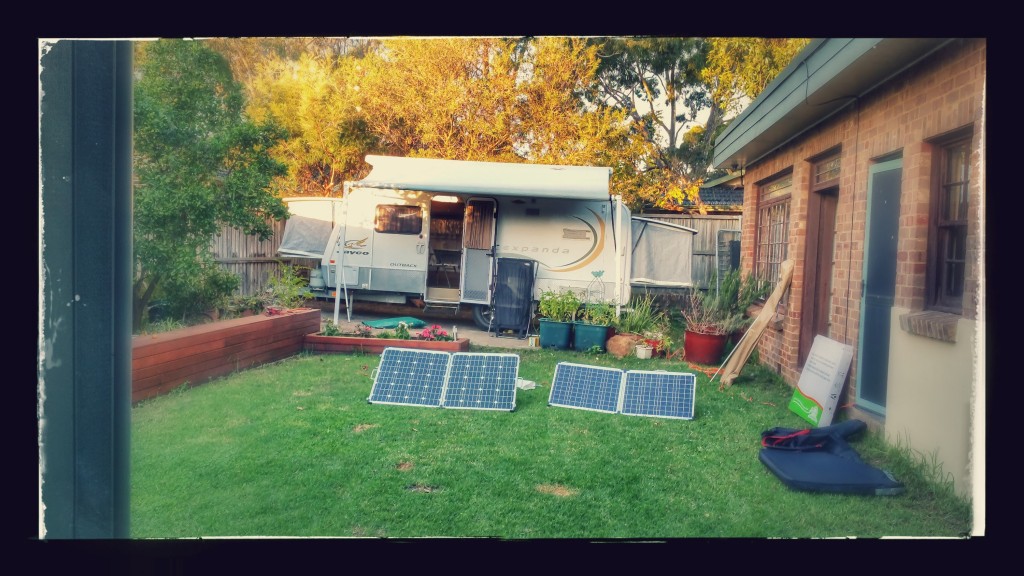
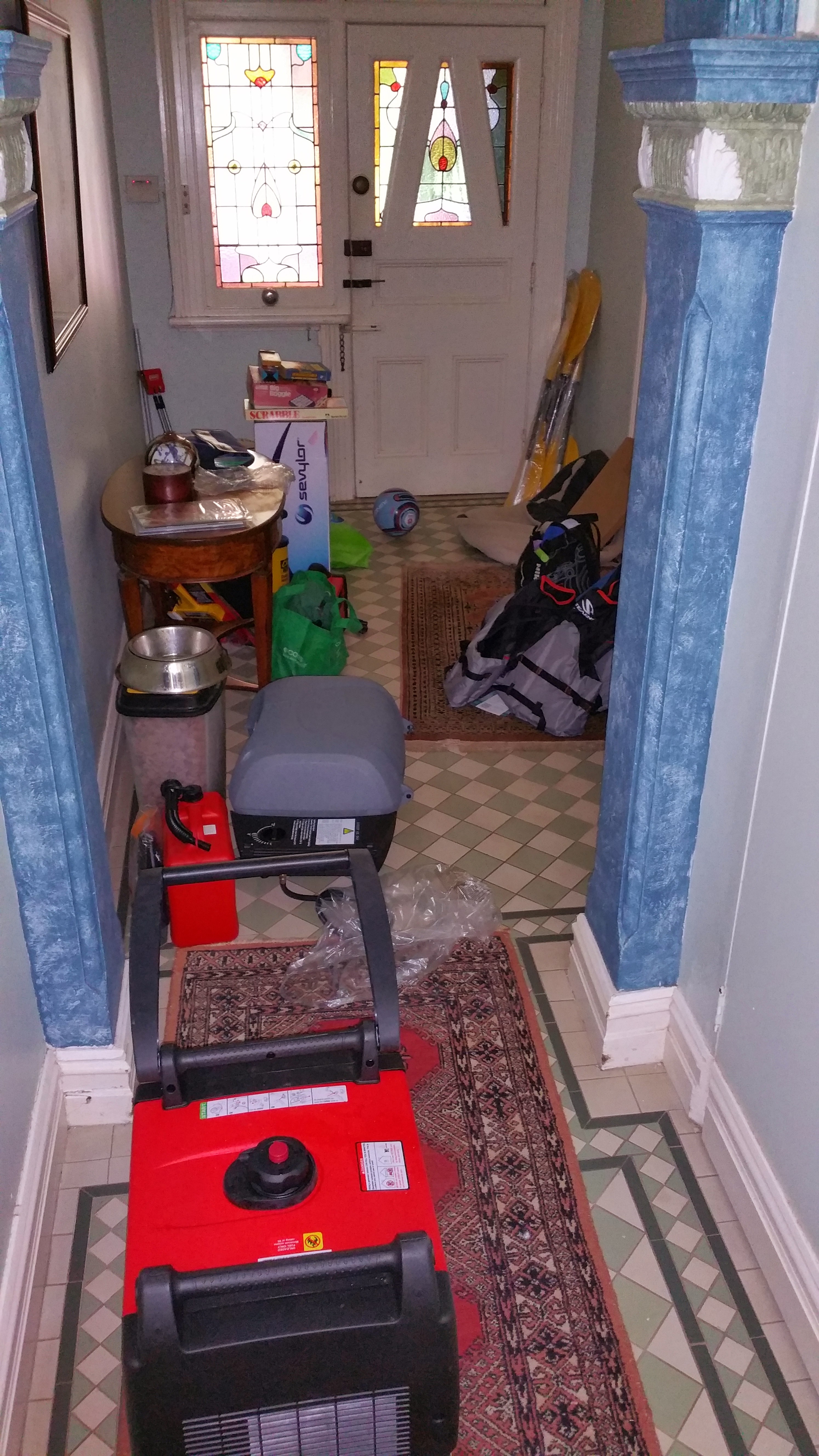
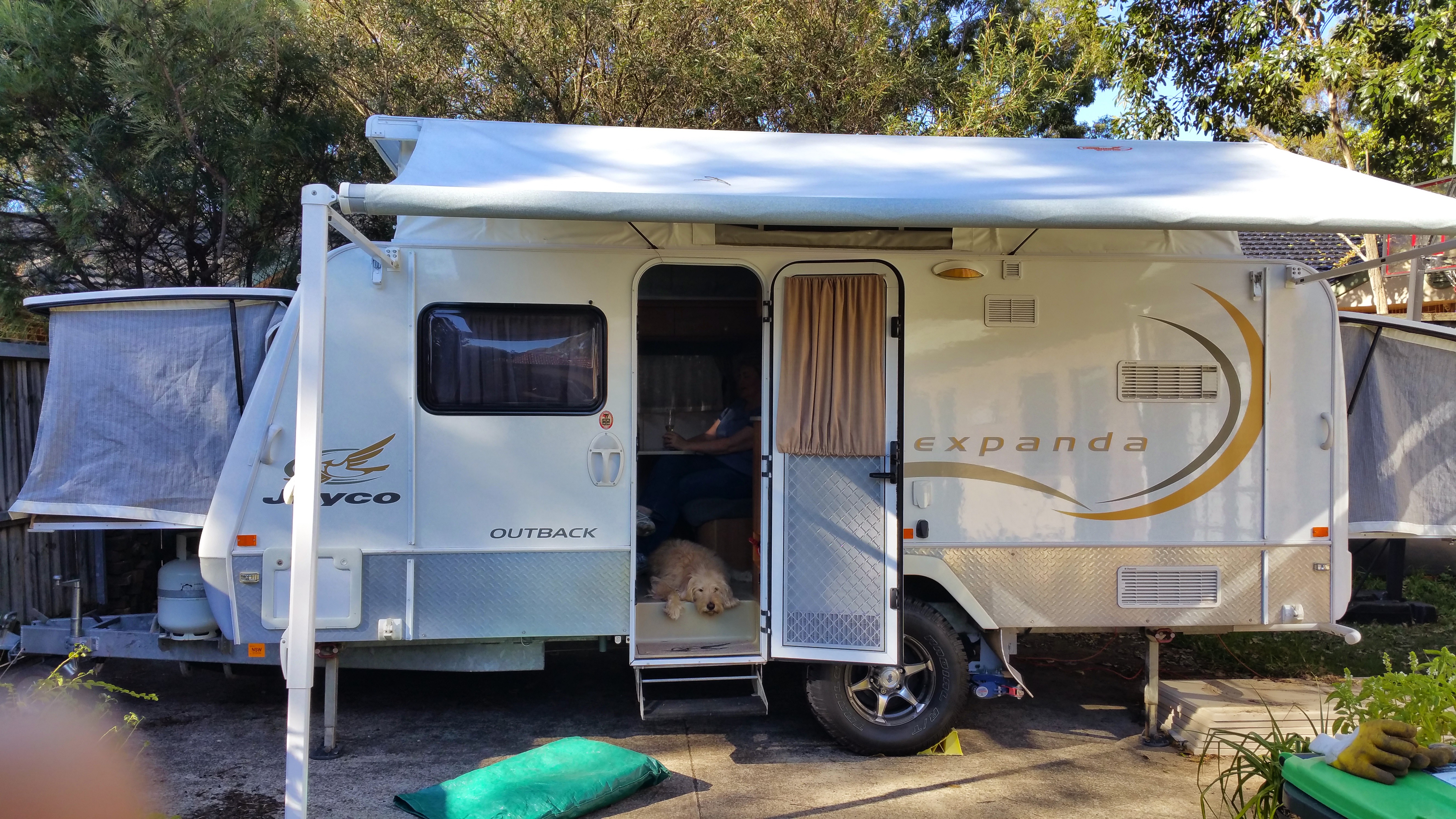
On Monday Carmel and I did our towing course. Towing a caravan requires to to forget almost everything you ever knew about driving a car. When you turn, you wait until the rear wheel of the 4WD is level with the curb (or witch’s hat if your are lucky, or petrol bowser if unlucky) before you begin to turn. Your brain is screaming that you are out to far but when you look back, the van only just makes it.
After a brief how to connect and disconnect your van, the first tricky exercise was to do a doughnut (a tight circle ending up where you started) with the van attached. Except for the fact I was fully focused on mastering the skill, I should have taken a video of the car park with 5 vans all reversing in circles. Anyway, once you get a feel for it, it is quite straightforward. Now I know what to do when the Apaches attack and ride around us in a anti-clockwise direction (or is the clockwise in the southern hemisphere). But the purpose is to know how to hold the van in a smooth motion and it is used when reversing into a van spot.
Note to self.
Stickers maketh the holiday.
When I was little, I often got a sticker book to start off the holiday. I recall a book of the Battle of Waterloo with beautifully attired French, British and Prussian cavalrymen as stickers. I arranged then in a hopelessly tangled melee. I think my brother got a sticker book of an airport with jet aircraft. These he arranged so as to loose the bowels of even the most hardened air traffic controller. The stuff of holidays.
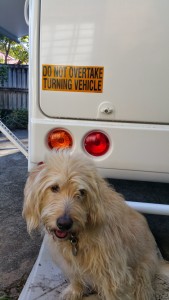 This holiday actually needed stickers on the van – as part of the Tow-ed course. This little beauty requires me to be over 7.5 metres in length. The caravan is 6.5 metres on its own, so I am a shoe-in! With it, I can turn left from the right hand lane, which I joyfully did on leaving Sydney.
This holiday actually needed stickers on the van – as part of the Tow-ed course. This little beauty requires me to be over 7.5 metres in length. The caravan is 6.5 metres on its own, so I am a shoe-in! With it, I can turn left from the right hand lane, which I joyfully did on leaving Sydney.
The next cool stickers went on the front of the van. lf you look carefully, you will see a Firefox on either end of the van and two penguins in between. (You may need to tap on the image to get a close up. )
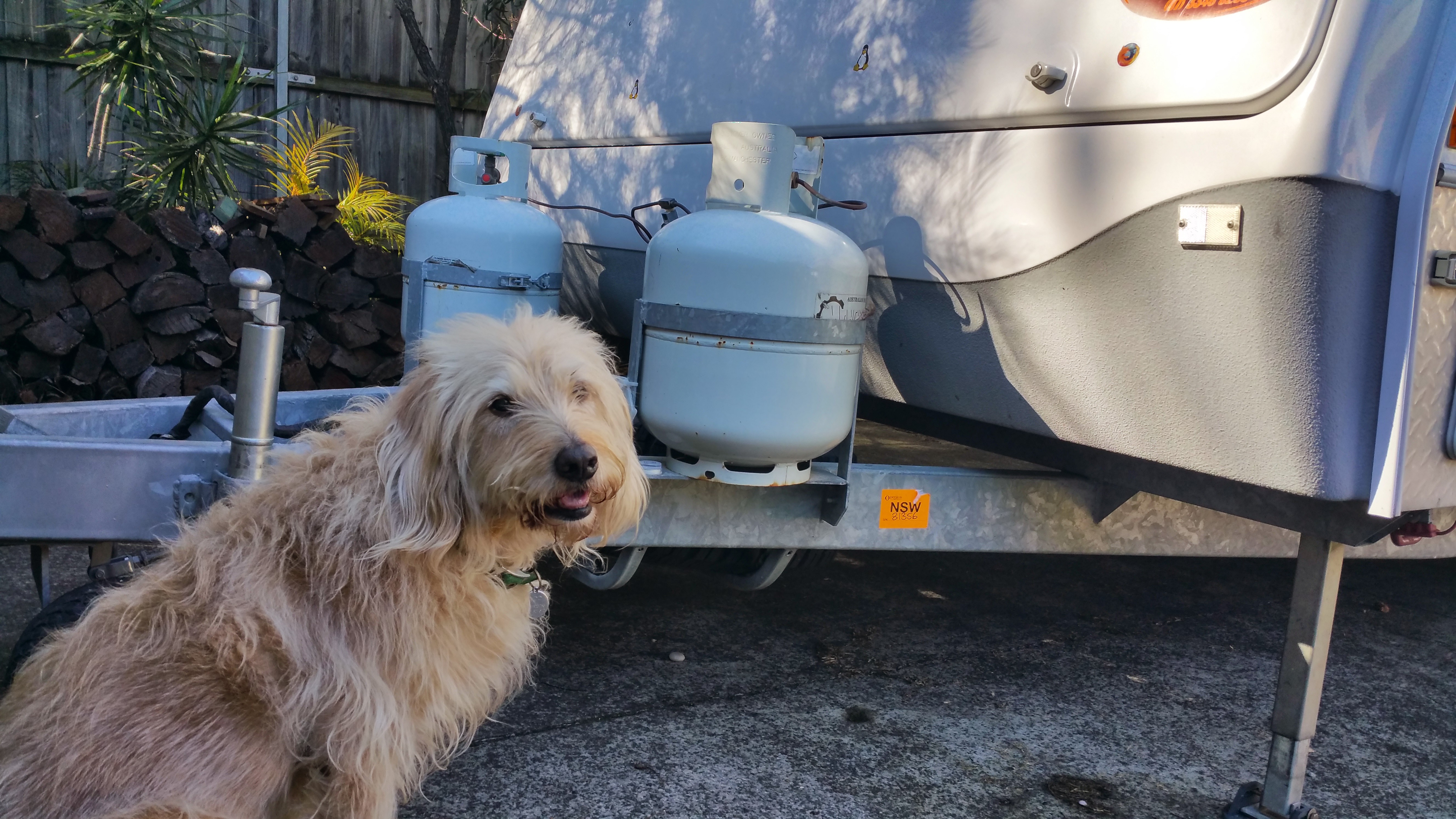 When you are reversing the van, you turn to full lock the wrong way and reverse slowly until you see the SECOND penguin. Then stop and turn full lock the right way. Then reverse slowly keeping that second penguin in view. If you see the second Firefox, stop and go forwards as you are about to jack knife.
When you are reversing the van, you turn to full lock the wrong way and reverse slowly until you see the SECOND penguin. Then stop and turn full lock the right way. Then reverse slowly keeping that second penguin in view. If you see the second Firefox, stop and go forwards as you are about to jack knife.
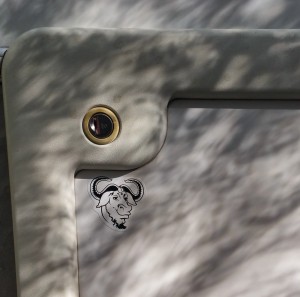 This last sticker means Gnu is not Unix. Once you get started with stickers, it is hard to stop!
This last sticker means Gnu is not Unix. Once you get started with stickers, it is hard to stop!
One of Carmel’s work colleague sent these. They look very good:
Ideas are beginning to roll in for the journey. This blog seems good place to keep them until we get there. We shall be in Appila Springs in South Australia for a bit before taking on the desert. That is 200 km north of Adelaide (Australia is just soooo big!), but we might be tempted to deviate for a nice coffee.